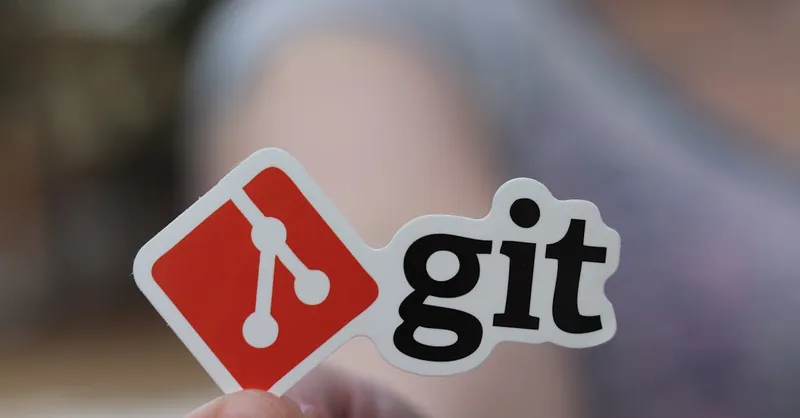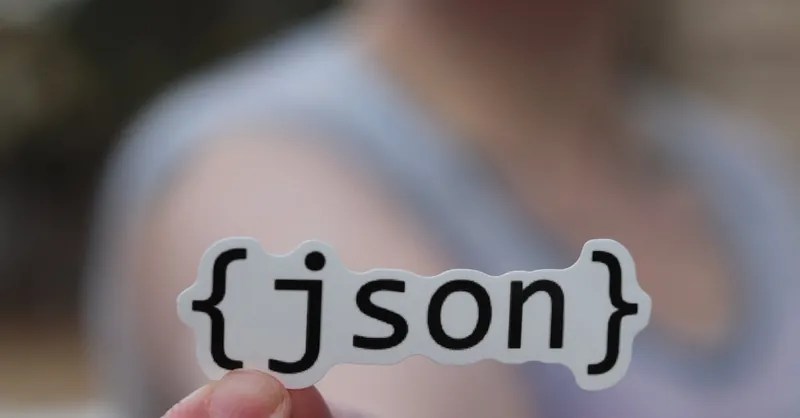Top Ways to Monetize Your Programming Skills Creatively
Category: Programming
Unlock Your Programming Potential: From Code to Passive Income
If you're a programmer or a tech-savvy coder searching for innovative methods to monetize your programming skills, you're likely eager to break free from the traditional 9-to-5 grind or simply boost your earnings. You've probably tried basic freelancing gigs or felt stuck wondering if there's a smarter way to earn—especially with passive income streams that require less ongoing effort. This post is tailored for you: an ambitious developer who knows the craft but wants to channel those skills into sustainable, scalable income.
We’ll dive straight into practical and creative avenues that go beyond the usual advice. Whether you want to build apps that generate residual revenue, leverage automation tools, contribute to open source projects, or create SaaS solutions, this guide provides the strategic framework and actionable ideas to start now. Unlike generic tutorials, we focus on monetization strategies optimized for lasting impact, crafted from the latest insights and top-ranking content on this topic. By the end, you'll have a clear roadmap to turn your coding expertise into meaningful income streams that work for you—passively or with minimal maintenance.
Let's explore the most effective and innovative ways to monetize your programming skills that align with your goals and leverage your unique abilities.
- Unlock Your Programming Potential: From Code to Passive Income
- Evaluating Your Programming Strengths and Market Demand
- Building and Selling Software Products: Creating Passive Income with Standalone Apps and Web Solutions
- Developing and Monetizing SaaS (Software as a Service): Building Recurring Revenue with Subscription Models
- Creating and Publishing Coding Tutorials, Courses, and eBooks: Packaging Your Programming Knowledge for Passive Income
- Open Source Contributions and Sponsored Development: Leveraging Community Projects for Monetization
- Building and Monetizing APIs and Developer Tools: Unlocking Revenue Through Usage Fees and Subscriptions
- Automation Projects for Passive Revenue: Designing Bots, Scripts, and Workflows to Generate Earnings
- Freelancing and Consulting as Stepping Stones: Using Client Projects to Fund Your Passive Income Ventures
- Optimizing Your Online Presence and Personal Brand: Establishing Authority Through Blogging, YouTube, and Social Media to Boost Sales and Partnerships
- Scaling and Diversifying Your Income Streams: Best Practices for Managing Multiple Projects, Reinvesting Proceeds, and Ensuring Long-Term Stability
Evaluating Your Programming Strengths and Market Demand
Before diving into monetization strategies, it’s crucial to identify your core programming strengths and understand where your skills intersect with current market needs. Start by listing your top coding languages, frameworks, and problem-solving capabilities—whether it’s web development with JavaScript, data analysis using Python, or embedded systems programming in C++. Knowing your specialties helps you target niches where you can provide the most value with less competition.
Next, assess market demand by researching trending technologies and industry pain points that align with your expertise. Tools like Google Trends, GitHub repositories’ popularity, and job boards reveal high-interest areas such as AI automation, blockchain applications, or cloud-native development. Focus on niche markets ripe for monetization—these are often underserved segments where your unique skills can create scalable passive income streams. For example, if you excel at API integrations, building a specialized plugin or automation toolkit could attract a dedicated user base willing to pay for convenience and efficiency.
By combining a clear understanding of your programming prowess with real-time market data, you position yourself to develop products or services that not only showcase your strengths but also meet genuine demand—setting a solid foundation for sustainable, passive revenue.

Image courtesy of Artem Podrez
Building and Selling Software Products: Creating Passive Income with Standalone Apps and Web Solutions
One of the most direct and scalable ways to monetize your programming skills is by building standalone software products—such as desktop applications, mobile apps, or web-based platforms—that can be sold or licensed repeatedly with minimal ongoing work. Creating a valuable software product transforms your coding efforts into a self-sustaining income stream, allowing you to earn from initial development plus future sales or subscriptions without actively trading time for money.
Key Steps to Building Marketable Software Products
- Identify a clear pain point or niche based on your market research and personal expertise. Successful software products solve specific problems or automate routine tasks that users are willing to pay to address.
- Choose the right platform depending on your target audience and use case:
- Desktop apps (Windows, macOS, Linux) work well for offline tools or specialized utilities.
- Mobile apps (iOS, Android) tap into the widespread smartphone market, ideal for convenience-focused solutions.
- Web applications offer instant access without downloads and are excellent for subscription-based SaaS products.
- Build with scalability and maintainability in mind, using popular frameworks and cloud services that simplify deployment and reduce long-term upkeep. Consider leveraging APIs, modular architectures, and automated testing to improve product quality and speed your release cycle.
- Incorporate monetization models that align with your software’s value proposition:
- One-time purchase licenses for standalone tools.
- Subscription plans for ongoing services and SaaS.
- Freemium models that hook users with free features and upsell premium capabilities.
- In-app purchases or ads for mobile applications.
- Market your product strategically through nichespecific forums, social media campaigns, and developer communities. Offering free trials, demos, or open-source components can boost user trust and adoption, building a loyal customer base that fuels passive income through renewals and referrals.
By crafting software products that combine your programming strengths with a well-researched target market, you unlock a powerful passive income channel. Not only does this approach leverage your technical skills, but it also positions you to generate recurring revenue by solving real-world problems with scalable, user-centric solutions.

Image courtesy of _Karub_
Developing and Monetizing SaaS (Software as a Service): Building Recurring Revenue with Subscription Models
Creating a Software as a Service (SaaS) product is one of the most lucrative ways to monetize your programming skills with a steady, recurring income stream. Unlike traditional software sales, SaaS platforms rely on subscription-based models where users pay regularly—monthly or annually—for continuous access. This model not only generates predictable revenue but also helps you build a loyal customer base through ongoing value delivery and feature enhancements.
Essential Steps to Design, Launch, and Scale a Successful SaaS
- Pinpoint a scalable problem with recurring user needs. The best SaaS ideas target pain points that require constant use or benefit from continuous updates, such as project management, analytics dashboards, or niche industry tools.
- Develop a Minimum Viable Product (MVP) that highlights your core value proposition. Focus on essential features that solve the main user problems without overbuilding. This approach accelerates time-to-market and allows you to gather vital early user feedback.
- Implement a reliable, cloud-based infrastructure using services like AWS, Google Cloud, or Azure to ensure your platform can scale smoothly with rising user demand. Automated deployment pipelines, containerization (Docker/Kubernetes), and robust database management safeguard uptime and performance.
- Adopt subscription pricing tiers aligned with user needs, offering a free trial or freemium entry point to reduce barriers and encourage adoption. Transparent pricing combined with clear feature differentiation encourages upgrades and long-term retention.
- Focus on user onboarding and support automation. Great onboarding experiences, in-app tutorials, and proactive customer support minimize churn and enhance user satisfaction, driving consistent renewal rates.
- Leverage analytics and customer feedback loops to prioritize new features, optimize user experience, and tailor marketing strategies—keeping your SaaS competitive and aligned with evolving demands.
- Scale marketing efforts strategically through content marketing, SEO, partnerships, and paid campaigns targeted to your ideal customer segments. Building a community or referral program can accelerate organic growth.
By executing these steps thoughtfully, you can transform your programming skills into a scalable, subscription-based business with predictable, recurring revenue—a cornerstone for any passive income portfolio. SaaS development rewards not just your coding expertise but also your ability to continuously iterate and add value, making it an evergreen income source as you grow your user base and refine your product.

Image courtesy of Markus Winkler
Creating and Publishing Coding Tutorials, Courses, and eBooks: Packaging Your Programming Knowledge for Passive Income
One of the most impactful ways to monetize your programming skills is by creating and distributing educational content that shares your expertise with a wider audience. Whether you choose to develop coding tutorials, build comprehensive online courses, or write detailed eBooks, packaging your programming knowledge into learnable formats can generate passive income with minimal ongoing effort. Platforms like Udemy, Teachable, and Amazon Kindle provide accessible marketplaces and built-in audiences, making it easier than ever to reach learners eager to develop their skills.
Why Educational Content Monetization Works for Programmers
- Scalability: Once created, tutorials, courses, or eBooks can be sold an unlimited number of times without additional development costs.
- Authority Building: Publishing quality content establishes you as an expert, increasing trust and opening doors for consulting or speaking engagements.
- Diverse Income Streams: Combining different content formats—like short tutorials for quick skills and in-depth courses for mastery—broadens your market reach.
Effective Methods to Package and Publish Your Programming Knowledge
- Design structured online courses that break down complex topics into digestible modules. Use video lectures, coding exercises, quizzes, and community forums to enhance engagement. Platforms like Udemy and Teachable automate payment processing, content delivery, and student management, letting you focus on content quality.
- Create coding tutorials and blog series that target specific programming challenges or project-based learning. Use SEO best practices to attract organic traffic and integrate affiliate links to relevant development tools or courses for additional income.
- Write comprehensive eBooks or guides on niche programming topics or trending technologies. Self-publish on marketplaces such as Amazon Kindle Direct Publishing (KDP) for global reach, or offer downloadable PDFs via your own website for better pricing control and email list building.
- Leverage multimedia content like screencasts, live coding sessions, and downloadable code repositories to increase perceived value and justify premium pricing or subscription models.
- Promote your educational content by optimizing course descriptions and tutorial titles with targeted keywords, participating in developer forums, and creating lead magnets (free mini-courses or chapters) that funnel users into paid offerings.
By strategically creating and publishing programming tutorials, courses, and eBooks, you transform your coding knowledge into valuable digital assets that generate long-term passive income. This approach not only capitalizes on the growing demand for online learning but also amplifies your impact by helping others master programming skills—while establishing a sustainable revenue stream that grows alongside your reputation and expertise.

Image courtesy of cottonbro studio
Open Source Contributions and Sponsored Development: Leveraging Community Projects for Monetization
Contributing to open source projects is not only a way to build your reputation and sharpen your programming skills but also a strategic avenue to generate income through sponsored development, consulting, and paid extensions. By actively engaging with open source communities, you can leverage your expertise to create value that companies and individuals are willing to financially support, turning collaborative coding into a sustainable revenue stream.
How to Monetize Your Open Source Contributions
- Sponsorships and Patronage: Many developers and organizations sponsor open source contributors via platforms like GitHub Sponsors, Patreon, or Open Collective. By maintaining or significantly improving popular projects, you attract recurring financial support from users and companies that depend on your code.
- Paid Consulting and Support: Companies relying on open source software often need expert help with customization, bug fixes, or integration. Offering consulting services, troubleshooting, or implementation support related to your contributions can turn your community involvement into consulting gigs and retainers.
- Developing Paid Extensions and Plugins: Many successful projects thrive on ecosystems built around core software. You can build premium plugins, add-ons, or themes that extend open source tools, providing advanced features that users are willing to pay for—creating a lucrative passive income tier.
- Crowdfunding New Features or Tools: When your project addresses critical pain points, launching a crowdfunding campaign or pre-selling feature enhancements can fund development upfront while validating demand.
- Corporate Partnerships: Establish relationships with companies that use your open source projects extensively. Some organizations sponsor dedicated development directly or contract specific feature work, integrating your contributions into their commercial workflows.
By positioning yourself as a trusted open source maintainer or contributor, you gain visibility and credibility that can turn voluntary work into paid opportunities. This approach maximizes the reach of your programming skills while building a diverse, resilient income portfolio grounded in community-driven software development. Prioritize high-impact, widely-used projects or niche tools with passionate user bases to optimize your earning potential.

Image courtesy of RealToughCandy.com
Building and Monetizing APIs and Developer Tools: Unlocking Revenue Through Usage Fees and Subscriptions
A highly effective and scalable way to monetize your programming skills is by creating APIs (Application Programming Interfaces) or specialized developer tools that solve concrete problems or automate complex workflows. APIs have become the backbone of modern software ecosystems, enabling diverse applications to interact seamlessly. If you build APIs or utilities that deliver unique value—whether for data access, process automation, or integrating multiple platforms—you can generate passive income through usage-based fees or recurring subscriptions.
Why Build APIs and Developer Tools?
- High Demand and Versatility: Businesses and developers constantly seek reliable APIs to improve efficiency, integrate services, or add new features without reinventing the wheel.
- Recurring Revenue Potential: With subscription models or pay-per-use pricing, your income scales alongside API adoption and customer growth.
- Low Maintenance and Scalability: Well-designed APIs require minimal manual intervention once deployed, especially when hosted on cloud platforms that handle scaling automatically.
- Opportunities for Niches and Specialization: Tailoring APIs or tools for niche industries like fintech, health tech, or e-commerce can reduce competition and maximize profitability.
Strategies to Monetize Your APIs and Developer Utilities
- Identify a Specific Pain Point to Address: Research developer forums, industry feedback, and existing tools to find gaps you can fill with your API or tool.
- Design a Robust, Easy-to-Use API or Utility: Focus on clear documentation, SDKs, and onboarding processes to boost adoption rates.
- Choose Your Pricing Model Based on Usage and Value:
- Freemium: Offer free access with limited requests or features to attract users, then convert to paid plans for higher limits or advanced capabilities.
- Subscription Plans: Charge monthly or annual fees with tiered access, catering to startups, SMEs, and enterprises.
- Pay-as-You-Go: Bill users based on actual consumption, ideal for APIs with variable traffic patterns.
- Leverage Cloud Infrastructure: Use providers such as AWS API Gateway, Azure API Management, or Google Cloud Endpoints for scalable hosting and analytics.
- Implement Analytics and Billing Automation: Track usage metrics and automate invoicing to streamline operations and focus more on product improvements.
- Promote Your API or Tool Effectively: Publish on API marketplaces (RapidAPI, Postman), contribute to developer forums, and create tutorials or case studies showcasing practical integrations.
By developing high-quality APIs and developer tools focused on niche problems, you create a profitable, recurring passive income stream that benefits from growing API economy trends. This approach transforms your programming expertise into a long-term asset—an accessible, scalable product that developers and businesses pay for continuously as they rely on your solutions to power their own applications.

Image courtesy of RealToughCandy.com
Automation Projects for Passive Revenue: Designing Bots, Scripts, and Workflows to Generate Earnings
Harnessing your programming skills to build automation projects unlocks powerful avenues for generating passive income with minimal ongoing intervention. By designing intelligent bots, scripts, or automated workflows, you can create systems that continuously perform valuable tasks—such as managing affiliate marketing campaigns, executing algorithmic trading strategies, or streamlining sales on online marketplaces—while you focus on other priorities.
Key Automation Ideas to Monetize Programming Expertise
- Affiliate Marketing Bots: Automate the promotion of affiliate products by developing bots that generate content, post on social media, or manage email campaigns with personalized recommendations. This approach amplifies reach and conversions without daily manual work, resulting in commission-based revenue streams.
- Algorithmic Trading Scripts: Write and deploy trading bots that analyze market data, identify trends, and place trades automatically on platforms like cryptocurrency exchanges or stock brokers. Properly designed trading automation can generate consistent profits 24/7, leveraging your coding skills to capitalize on market opportunities.
- E-commerce and Online Marketplace Automation: Create scripts or integrations that handle inventory updates, pricing adjustments, order processing, or customer communication on platforms like Amazon, Etsy, or Shopify. These automated workflows streamline operations and optimize sales funnels, boosting passive earnings with minimal supervision.
- Content and SEO Automation: Develop tools that automatically generate SEO-optimized content, perform keyword research, or manage backlink outreach. Such automation accelerates organic traffic growth for blogs and websites that monetize through ads or affiliate links.
- Social Media and Community Management Bots: Build bots that schedule posts, engage with followers, or moderate communities across platforms such as Twitter, Instagram, Reddit, or Discord. This maximizes audience engagement and drives traffic to monetized assets without constant manual input.
Essential Considerations for Creating Profitable Automation Projects
- Reliability and Security: Automated systems should be robust and secure, minimizing the risk of errors or unauthorized access that could disrupt earnings or damage reputation.
- Compliance and Transparency: Ensure your automation respects platform policies and legal frameworks—especially for trading bots and marketing automation—to build sustainable, risk-mitigated income streams.
- Monitoring and Optimization: While automation reduces daily tasks, periodic monitoring and fine-tuning are critical to maintaining and scaling performance over time.
- Scalability and Adaptability: Design scripts and workflows to easily scale with growing traffic or transaction volume, and update them to adapt to changing platform APIs or market conditions.
By intelligently leveraging automation, you transform repetitive processes into self-sustaining revenue engines that operate around the clock. This strategy not only maximizes your programming skills for passive income generation but also diversifies your monetization portfolio across dynamic digital markets.

Image courtesy of Kindel Media
Freelancing and Consulting as Stepping Stones: Using Client Projects to Fund Your Passive Income Ventures
While passive income remains the ultimate goal for many programmers, freelancing and consulting serve as practical stepping stones to build capital, expand your professional network, and gain industry credibility. Engaging with client projects allows you to apply and sharpen your coding skills in real-world scenarios while generating steady active income that can fund your longer-term passive income ventures such as SaaS products, automation tools, or educational content.
Why Freelancing and Consulting Are Valuable Foundations
- Immediate Revenue Generation: Unlike building a software product or course that takes time to gain traction, freelancing delivers faster cash flow to support your passive income development.
- Market Insight and Validation: Working closely with clients exposes you to industry pain points and emerging technology needs, helping you identify profitable niches for scalable products.
- Network Expansion: Client relationships often lead to referrals, partnerships, or even investment opportunities that accelerate your passive income projects.
- Reputation Building: Successful project deliveries enhance your professional credibility, making it easier to attract users or buyers when you launch your own offerings.
Maximizing the Transition from Client Work to Passive Income
- Select projects aligned with your passive income goals. For example, developing custom APIs or automation scripts can later be refined into commercial products.
- Set clear boundaries on scope and timelines to avoid burnout and free up time for building scalable income streams.
- Document and systematize repeatable solutions you create during consulting gigs, turning them into templates or products you can license or sell.
- Leverage your consulting portfolio in marketing your passive offerings—showcasing real-world impact and client testimonials builds trust.
By leveraging freelancing and consulting strategically, you build a sustainable financial and professional foundation. This approach not only fuels the early stages of your passive income journey but also positions you as a knowledgeable and trusted expert, accelerating the success of your scalable programming ventures.

Image courtesy of Anna Shvets
Optimizing Your Online Presence and Personal Brand: Establishing Authority Through Blogging, YouTube, and Social Media to Boost Sales and Partnerships
Building a compelling online presence and personal brand is essential for programmers who want to monetize their skills effectively. Establishing yourself as an authority through blogging, YouTube content creation, and active engagement on social media platforms not only increases your visibility but also builds trust with your target audience. This trust directly translates into higher sales of your digital products, more subscribers to your tutorials, and opens doors to lucrative partnerships or sponsorships—amplifying your passive income potential.
Why Personal Branding Matters for Programmers Monetizing Skills
- Trust and Credibility: Sharing valuable insights, coding tips, project walkthroughs, and industry news reinforces your expertise, making prospects more likely to buy your products or services.
- Organic Traffic Growth: Well-optimized blogs and videos attract search engine traffic, driving consistent, long-term visitors to your content and monetization funnels.
- Partnership Opportunities: A strong, consistent online presence draws attention from brands, companies, and other developers interested in collaboration, sponsorships, or affiliate relationships.
- Platform Diversification: Reaching audiences on multiple channels spreads risk and multiplies revenue sources — for example, earning from ad revenue on YouTube alongside course sales on your blog.
Strategies to Optimize Your Online Presence for Maximum Monetization
- Create High-Quality, SEO-Optimized Content Regularly: Publish programming tutorials, case studies, and problem-solving articles targeting relevant keywords your audience searches for. Use tools like Ahrefs or SEMrush to identify SEO opportunities and monitor rankings.
- Leverage YouTube to Showcase Practical Coding Projects: Develop engaging video content such as coding walkthroughs, software demos, or live debugging sessions. Ensure your video titles, descriptions, and tags include strategic keywords to boost discoverability.
- Engage Actively on Developer-Centric Social Networks: Platforms like Twitter, LinkedIn, Reddit, and specialized forums provide opportunities to share your content, participate in discussions, and showcase your expertise.
- Build an Email List via Lead Magnets: Offer downloadable resources like cheat sheets, code snippets, or mini eBooks in exchange for emails. Email marketing nurtures your audience, drives repeat traffic, and promotes product launches efficiently.
- Consistently Brand Your Profiles and Content: Use a professional logo, consistent color scheme, and a clear messaging style across platforms to increase recognition and recall.
- Collaborate and Network with Influencers and Developers: Guest post on popular blogs, co-host webinars, or participate in podcasts to broaden your reach and tap into established audiences.
By combining strategic content creation with consistent social engagement and proactive networking, you position yourself as a go-to expert in your programming niche. This authoritative personal brand acts as a powerful multiplier for your monetization efforts—fueling passive income growth through increased product sales, higher affiliate conversions, and meaningful partnerships that expand your reach and revenue streams.

Image courtesy of Anna Nekrashevich
Scaling and Diversifying Your Income Streams: Best Practices for Managing Multiple Projects, Reinvesting Proceeds, and Ensuring Long-Term Stability
As you begin to generate revenue from your initial programming ventures, the next crucial step is scaling and diversifying your income streams to build a resilient, long-term passive income portfolio. Relying on a single project or revenue source can expose you to market fluctuations or shifting user needs, whereas a diversified set of programming assets spreads risk and maximizes earning potential. Scaling also enables you to optimize your time and resources, creating multiple layers of passive income that compound over time.
Effective Strategies to Manage and Grow Multiple Programming Projects
- Prioritize Projects by Revenue and Maintenance Load: Focus your energy on high-impact ventures that yield steady income with manageable upkeep. Automate monitoring and maintenance where possible to free up capacity for new developments.
- Implement Robust Project Management Practices: Use tools like Trello, Jira, or Notion to track progress, bugs, feature requests, and deadlines across projects. Delegation or outsourcing routine tasks (such as customer support or content updates) can keep your portfolio efficient and sustainable.
- Reinvest Proceeds Strategically: Allocate a portion of your earnings back into your business—whether it’s enhancing existing software, marketing to grow the user base, or expanding into complementary niches like creating API integrations or educational products. Consider investing in tools and infrastructure that increase automation and scalability.
- Build Synergies Across Projects: Look for ways to cross-promote your offerings or integrate them under a unified brand, maximizing customer lifetime value and brand loyalty. Shared technology components or codebases can speed up new product launches and reduce costs.
- Stay Informed and Adapt: Continuously monitor industry trends, user feedback, and competitor movements to evolve your projects. Being proactive about pivoting or expanding your portfolio based on market demand secures your long-term relevance and stability.
By adhering to these best practices, you not only manage multiple passive income streams effectively but also create a virtuous cycle of growth—where the success of one project fuels the development of others. This diversified and scalable approach unlocks the full potential of your programming skills for consistent, reliable passive income well into the future.

Image courtesy of Photo By: Kaboompics.com
